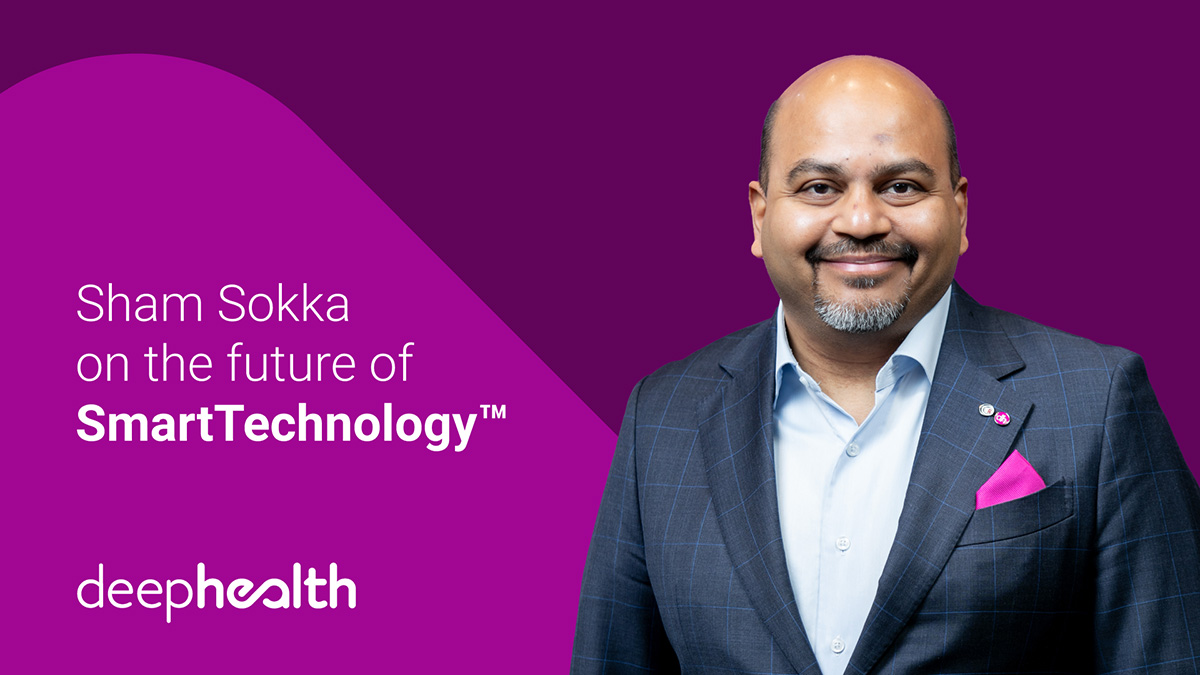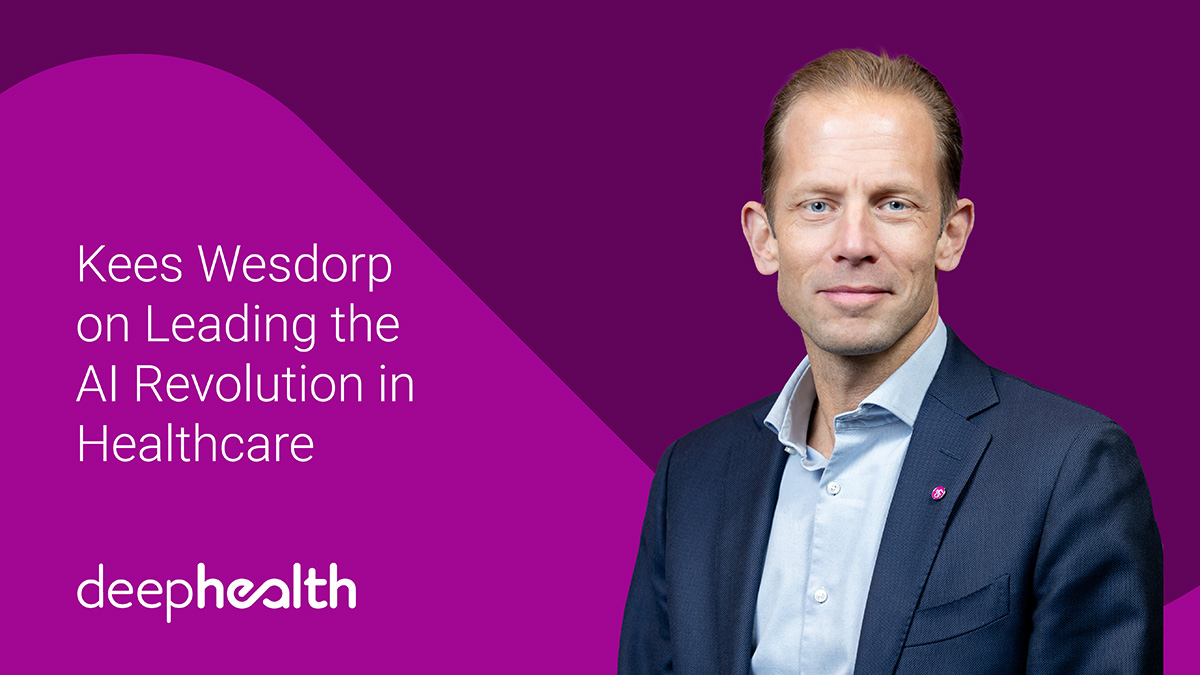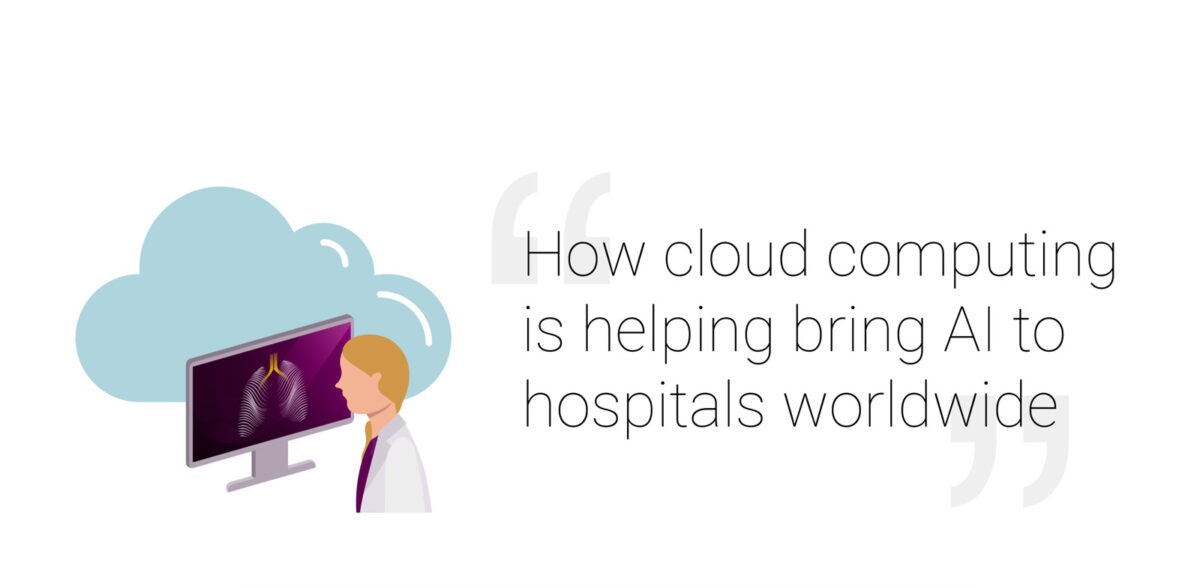Original article published October 16, 2024, on AuntMinnie.com
Artificial intelligence (AI) is transforming the fight against cancer by enabling faster and more accurate cancer detection. DeepHealth, a global leader in AI-powered health informatics, is pioneering new ways to advance cancer screening and broader imaging-based care, harnessing AI in an integrated, end-to-end approach to radically improve healthcare delivery.
Powering smart technologies to make a meaningful impact in cancer detection
In breast cancer, DeepHealth’s AI-powered breast screening solution is proving to increase detection rates by an impressive 21%.1 By drawing the radiologist’s attention quickly to suspicious lesions, the AI provides powerful diagnostic assistance, improving radiologist interpretation performance of digital breast tomosynthesis (DBT) screening mammograms.2
In prostate cancer, AI assistance has the potential to shrink the number of missed prostate findings to only 1% in cases where radiologists alone would have missed 8% of clinically significant cancer instances.3Even experienced radiologists see a boost in performance, but most significant are the results for less experienced radiologists. A radiologist-in-training using DeepHealth’s AI-powered prostate solution4 has the potential to achieve diagnostic sensitivity and positive predictive value equal to that of an expert radiologist.5
Embedding AI across the care pathway to improve end-to-end operations
In addition to enabling clinical excellence, DeepHealth intends to integrate AI throughout the radiology workflow to increase operational efficiency. At the heart of their portfolio is a cloud-native operating system – the DeepHealth OS – designed to unify data across the clinical and operational workflow, with personalized AI-powered workspaces that will give each person in the care team access to integrated data in a connected workflow.
This end-to-end approach is a gamechanger. It will allow task automation, quicker data access, better insights, and will more broadly facilitate the clinical and technological adoption of the AI tools. From the very first engagement with a patient, DeepHealth’s integrated solutions will enable a more streamlined experience. Data will flow seamlessly throughout the patient journey, enhancing interoperability and ensuring the data is available and easily accessible to everyone in the care team, when and how they need it.
Leveraging AI for more equitable and accessible care
AI can also help expand patient access to radiology care. In places where experienced radiologists aren’t available, like rural or low-income areas, AI can enable the delivery of higher-quality care.
Developing solutions that perform effectively across diverse populations requires utilizing large, comprehensive data sets to build and validate the algorithms. DeepHealth trains and tests on a wide variety of patient data, and this helps ensure their solutions perform well across diverse patient subgroups.6
Scaling up and orchestrating larger population screening programs is one of the most effective ways to offer more people access to cancer detection, but high-volume screening multiplies the number of scans needing to be read, which compounds the workload for radiologists already under pressure. Moreover, reading and interpretating scans can be complex and time-consuming, even for experienced radiologists, and the specialists needed to read the scans are in short supply.
To tackle these challenges, DeepHealth brings together proven AI-powered solutions, a more efficient end-to-end approach, and clinical expertise in high-volume settings. Their solutions are used at over 800 clinical sites and by more than 3,000 radiologists around the world, and this close connection with clinical practice helps ensure DeepHealth solutions reflect real-world needs.
Orchestrating large-scale screening programs
A perfect example is RadNet’s groundbreaking mammography screening initiative in the US. The Enhanced Breast Cancer Detection program, powered by DeepHealth technology, processes roughly 1.4 million studies each year. To streamline workload, radiologists are equipped with tools to quickly and accurately detect even subtle lesions, combining high-quality AI-powered mammography systems to optimize breast cancer screening.
Also in the US, RadNet’s Enhanced Prostate Screening combines MRI, which plays an increasingly important role in prostate disease detection and diagnosis, with DeepHealth’s AI to deliver information to the radiologist early in the cancer detection process. This non-invasive prostate cancer screening program enables more patients to screen comfortably and efficiently.
In Europe, DeepHealth’s AI-powered lung solution7 is being used to assist radiologists in one of the world’s largest lung cancer screening efforts, the NHS England’s Targeted Lung Check Program, where data from the UK government shows 76% of cancers detected were found at earlier stages.8
Giving more people a chance at good health
Embedding AI for clinical and operational efficiencies helps better manage high volumes of patient data and enables large-scale screening programs, not only for cancer detection, but also other image-based population health efforts. DeepHealth is unlocking the value of imaging to address a range of diseases, including assessment and monitoring of neurodegenerative diseases.
By leveraging end-to-end smart technologies to streamline operations, support higher volumes of patients, and assist radiologists and clinicians in diagnosing and treating more patients, faster and with greater accuracy, DeepHealth is pushing the boundaries of what’s possible with imaging and is poised to revolutionize care delivery – in cancer detection and beyond.
1 Unpublished data from a study of 14 radiology practices (200 sites) in the United States. Data on file.
2 Kim et al., 2024.
3 Günzel et al., 2024.
4 DeepHealth’s prostate solution is manufactured as Quantib® Prostate for DeepHealth by Quantib B.V.
5 Faiella et al., 2022.
6 Kim et al., 2024.
7 Deephealth Lung (Veye Lung Nodules in Europe) manufactured for DeepHealth by Aidence B.V.
8 UK Department of Health and Social Care. New lung cancer screening roll out to detect cancer sooner, 2023.






